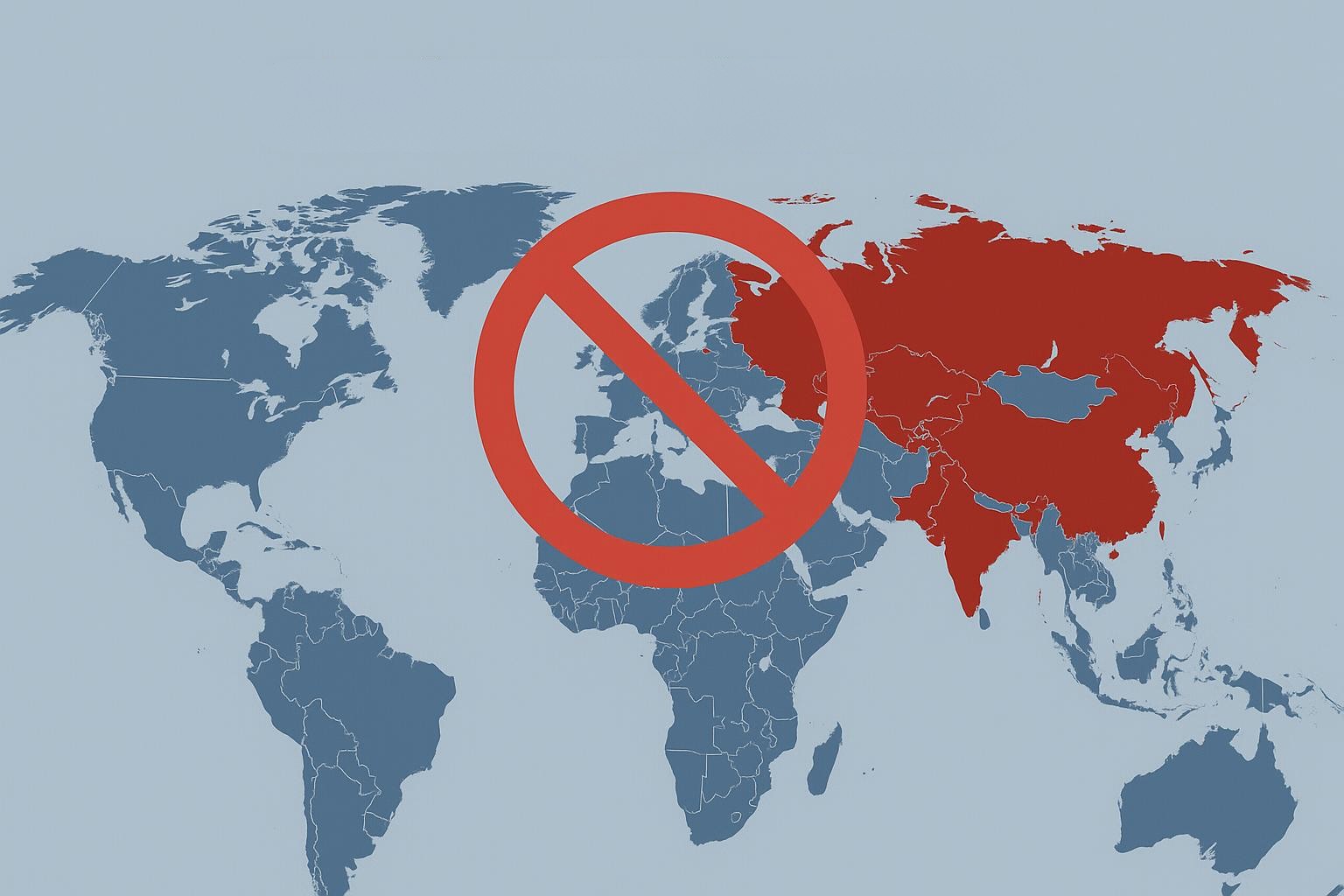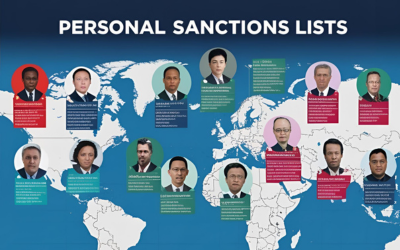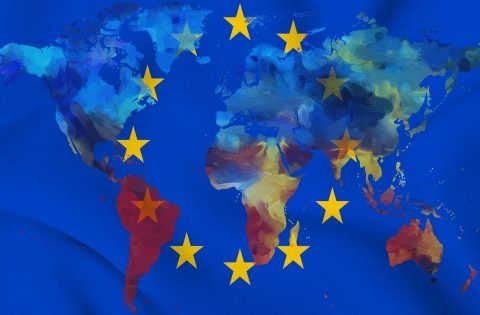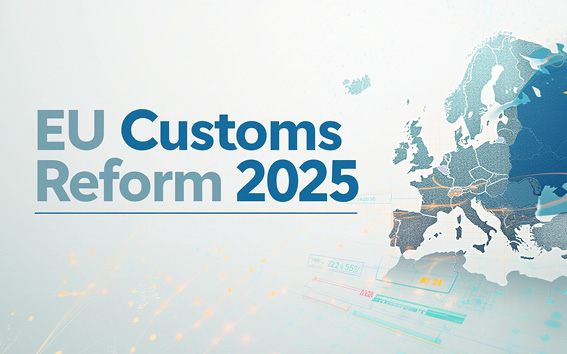Which countries are currently on the EU’s embargo list? And what does this mean for foreign trade? An embargo country is a state against which comprehensive or sectoral embargo measures have been imposed – for example, in the areas of energy, technology, or finance. However, not every sanctioned country is affected in the same way. This article provides an up-to-date overview of embargo countries (as of July 2025), background information, and important tips on how companies can identify compliance risks.
What are embargo countries?
The term “embargo country” is often used in practice to refer to countries against which comprehensive or sectoral economic sanctions are in place.
This does not include countries against which only an arms embargo is in place—in these cases, other economic transactions are generally permitted. In contrast, embargo countries are usually affected in several areas of foreign trade, meaning that companies are subject to comprehensive review obligations.
Typical forms of sanctions in embargo countries are:
- Sectoral embargoes: Restrictions that specifically target certain economic sectors such as energy, technology, or transportation.
- Financial sanctions: asset freezes, capital market bans, or transaction restrictions with financial institutions.
- Trade sanctions: export and import bans on certain product groups or services (e.g., luxury goods, dual-use goods).
These measures can occur in combination and affect not only the exchange of goods but also investments, services, and financial flows.
Who imposes embargoes?
The following institutions are particularly relevant for German companies:
- United Nations (UN) – adopts binding sanctions through Security Council resolutions.
- European Union (EU) – enacts autonomous measures within the framework of the Common Foreign and Security Policy (CFSP).
- National authorities such as the Federal Office for Economic Affairs and Export Control (BAFA) – implement UN and EU requirements in foreign trade law.
In addition, other actors from other countries are also important, whose sanctions regimes German companies must also observe depending on their business relationships.
Therefore, there is no uniform “embargo country list” at the global level. Instead, the EU, UN, and other institutions publish separate sanctions regimes for each affected country.
Overview of current embargo countries
EU embargo countries list (as of July 21, 2025)
A. Embargoed countries with comprehensive or sectoral economic sanctions
| Country | Affected sectors (selection) |
| Russia | Energy, technology, finance, defense, luxury goods, chemicals |
| Belarus | Dual-use, technology, finance, raw materials & minerals, aluminum, potash fertilizers, wood products, construction services |
| Iran | Energy, technology, finance, defense, dual-use |
| North Korea | All sectors, luxury goods, energy, technology |
| Myanmar | Finance, dual-use, military goods |
| Libya | Petroleum (illegal exports), military goods |
B. Countries subject to sanctions with arms embargoes or individual measures
These countries are subject to arms embargoes or other, albeit more limited, embargo measures:
- Syria
- Venezuela
- Sudan
- Yemen
- Somalia
- Central African Republic
- Congo (DR)
- Haiti
- Turkey
- Moldova / Transnistria
- China (special case, mainly measures targeting individuals)
Official sources of information with current lists of embargoed countries
Relevant for German companies:
- BAFA overview: country-specific embargoes as a list for download
- EU Sanctions Map: Interactive map of EU sanctions measures
- Zoll.de: Embargo information and country overviews
- EUR-Lex: Full texts of sanctions regulations
Companies should check these sources regularly—ideally using automated tools.
Sanctions traps & audit obligations in international business
Country-specific and person-specific sanctions – the difference and their relevance
Companies must bear in mind that sanctions can apply not only to countries, but also to individuals, organizations, and companies. Simply checking whether the target country of a transaction is on an embargo list is therefore not enough. Sanctions can therefore be roughly divided into two categories:
- Country-specific sanctions: Prohibitions on the provision of goods and services and trade restrictions in foreign trade with certain countries or regions.
- Person-specific sanctions: Restrictive measures against listed individuals, companies, or organizations – regardless of their nationality or location.
In practice, both forms are often used in parallel. For example, a country may be classified as subject to an embargo, while specific sanctioned actors—such as government officials or security-related companies—are placed on a separate sanctions list.
The reason for this is that country-specific sanctions structurally limit trade, while person-specific sanctions are intended to make circumvention more difficult – for example, through straw men or sham structures.
Consequences for companies:
A pure target country check is not sufficient. This is because sanctioned persons can, for example:
- broker deals via third countries,
- be beneficial owners in seemingly uncritical companies,
- operate through sham contracts or letterbox companies.
Only the combination of country checks and person-related screening ensures complete compliance.
Third-country transactions – an underestimated risk
Many companies also underestimate the risks of doing business with non-sanctioned third countries. There are numerous circumvention scenarios:
- Re-export via transit countries
Critical goods reach sanctioned regions via third countries. - Front companies and opaque structures
Sanctioned individuals use shell companies, trustees, or subsidiaries in third countries to circumvent sanctions. - Unclear end use
In the case of so-called dual-use goods, it is often impossible to clearly determine whether they will be used for civilian or military purposes – which means they may require approval.
Secondary sanctions by third countries
The US in particular imposes secondary sanctions on companies worldwide that cooperate with sanctioned entities. Even without a direct US connection, the following risks apply:
- Exclusion from the US market
- Reputational damage
- Loss of banking or financing partners
Conclusion: Even in seemingly non-critical transactions, companies must consistently review the entire structure of a process—from partners to end use.
What do companies need to bear in mind when doing business with countries subject to embargoes?
Business transactions with sanctioned countries are restricted. Depending on the type of sanctions, the following apply:
- Total bans (e.g., arms exports or luxury goods)
- Exports subject to authorization (e.g., dual-use goods for civilian use)
- Special regulations (e.g., humanitarian exceptions, old contracts)
Important: Even offering or negotiating a sanctioned transaction can be legally problematic, regardless of whether the contract is actually concluded.
Violations of embargo regulations have far-reaching consequences. They can be prosecuted and punished with fines, as well as pose reputational risks.
What does this mean for companies in concrete terms?
Legally compliant export decisions are only possible if companies fulfill the following verification obligations:
- Country verification: Embargo-related prohibitions and approvals
- Person verification: Comparison with international sanctions lists
- Dual-use verification: Technological classification and end use
- Know Your Customer verification: Transparency of beneficial owners
Ongoing monitoring of changes is also essential.
Only with an integrated software solution can these tasks be implemented in a scalable, automated, and audit-proof manner.
Conclusion – Sanctions list screening is mandatory for every international transaction
Effective sanctions management is both a requirement and a success factor for companies. It enables them to avoid fines and liability risks, protect their reputation, and maintain their market access and important business partners.
The key to successful sanctions list screening is a suitable software solution. This offers the following advantages:
- Up-to-date data from all relevant sanctions regimes
- ERP integration and automated workflows
- Fuzzy matching for detecting alias names
- Audit trail for documentation requirements vis-à-vis authorities






